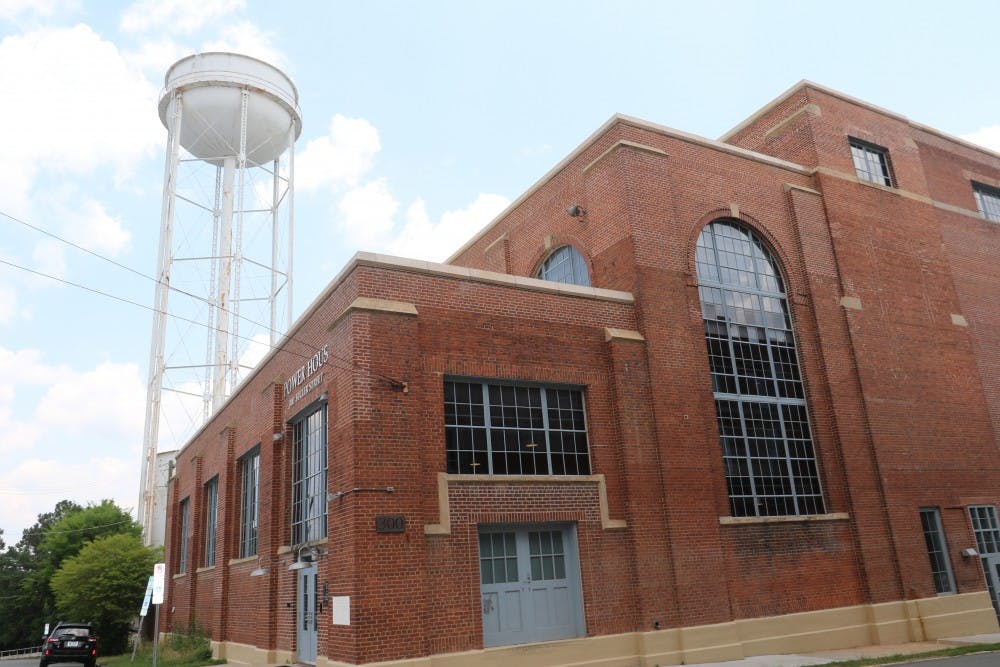Duke’s Innovation and Entrepreneurship Initiative is expected to move into its new home in Durham’s Innovation District by early August—a move that highlights the University’s expansion into downtown Durham.
The University has made significant investments in the area to expand its outreach networks and respond to increasing space demands on campus—Duke now has more than 2,700 employees downtown and occupies more than one million square feet of space in downtown Durham, including laboratories and research space for studying the life sciences in the Carmichael Building. The I&E initiative will add to that figure when it moves into its new 12,000 square-foot space in the Imperial Building, located in the heart of Durham’s Innovation District.
“Duke’s presence in downtown Durham is growing, and growing rapidly,” Eric Toone, vice provost and director of the I&E initiative, said.
The program chose to make the move from its current location in Gross Hall to the Imperial Building mainly due to space constraints and proximity to the Innovation District, Toone explained.
Duke's I&E initiative has experienced significant growth in recent years, expanding from four staff members in 2013 to its current size of 23. The program also serves more than 100 students through its new certificate program.
“Everything’s growing, everything’s expanding and there’s no way there’s enough space in Gross,” Toone said.
In addition to providing a more accommodating space, downtown Durham is compatible with the I&E Initiative because of its proximity to other existing researchers in the field, Toone explained. A number of Duke researchers currently work downtown in both the Carmichael and American Underground buildings, which is something Toone said the I&E initiative will try to take advantage of when it moves to its new space.
But the University's influence downtown extends well beyond the Innovation District.
The Imperial, Carmichael and American Underground buildings are just a few of many spaces Duke occupies and has renovated, explained Phail Wynn, vice president for Durham and regional affairs. The University has collaborated with city and county officials on several other renovation and investment projects because Duke’s well-being is interconnected with the city’s, he said.
“In order for the University to thrive and to continue to attract the best students, faculty and staff, we have to take a more active role in ensuring that the city that the University resides in is really an exciting and dynamic place to live,” Wynn said.
Duke has taken a more active role by helping to finance renovations for spaces in downtown Durham in recent years—taking initiative in renovating the Carmichael and Power House buildings, as well as partnering with the city to invest in initiatives like the Durham Performing Arts Center, the American Tobacco Campus and the Bull City Connector—a free shuttle service which connects downtown Durham to Duke Hospital and the University.
Downtown Durham is part of a widely-recognized entrepreneurship hub in the Triangle region. The Raleigh area was recently named the number one city for job seekers by Glassdoor—a site through which job seekers can look for openings and rate employers—and Business Insider ranked the Durham-Chapel Hill area as the seventh-best city for new college graduates in May 2014.
The University aims to help Durham continue building on its existing capital and social entrepreneurship primarily through its investments downtown, Wynn said.
At the most recent Board of Trustees meeting May 9, the Trustees met downtown and had a lengthy discussion about Duke's role in the revitalization of the area. Durham Mayor Bill Bell, Bob Geolas, president and CEO of the Research Triangle Foundation of North Carolina, and Adam Klein, chief strategist of the startup incubator American Underground, took part in the conversation and Wynn presented on several projects.
Among the topics Wynn addressed were the Duke-Durham Neighborhood Partnership, collaboration efforts with Durham Public Schools and a long-standing alliance with Self Help Credit to help low-income individuals purchase homes and businesses.
Regardless of how much the University continues its expansion downtown, access to transportation will likely be a long-term issue. Administrators are looking into ways to modify the Bull City Connector route to go further into campus and better reach employees, Wynn said.
Another new project Wynn is working on is determining how Duke and the city will collaborate on renovation of the Chester building, which is currently vacant. One of the main points of discussion is whether or not the University and Durham will partner to undertake a parking deck with 600 to 700 parking spaces to accompany the building. If the parking challenge is resolved, renovations will continue and Duke will commit to take additional space in the building, Wynn said.
Although the Chester building may be the latest example of the Duke-Durham partnership, Wynn said he and the Office of Durham and Regional Affairs will continue to work with local leaders on other projects as more needs arise.
“We’re just sort of waiting in the wings to see what are the things the city and the county feels are important projects that would require Duke as a partner,” Wynn said.
Get The Chronicle straight to your inbox
Sign up for our weekly newsletter. Cancel at any time.

